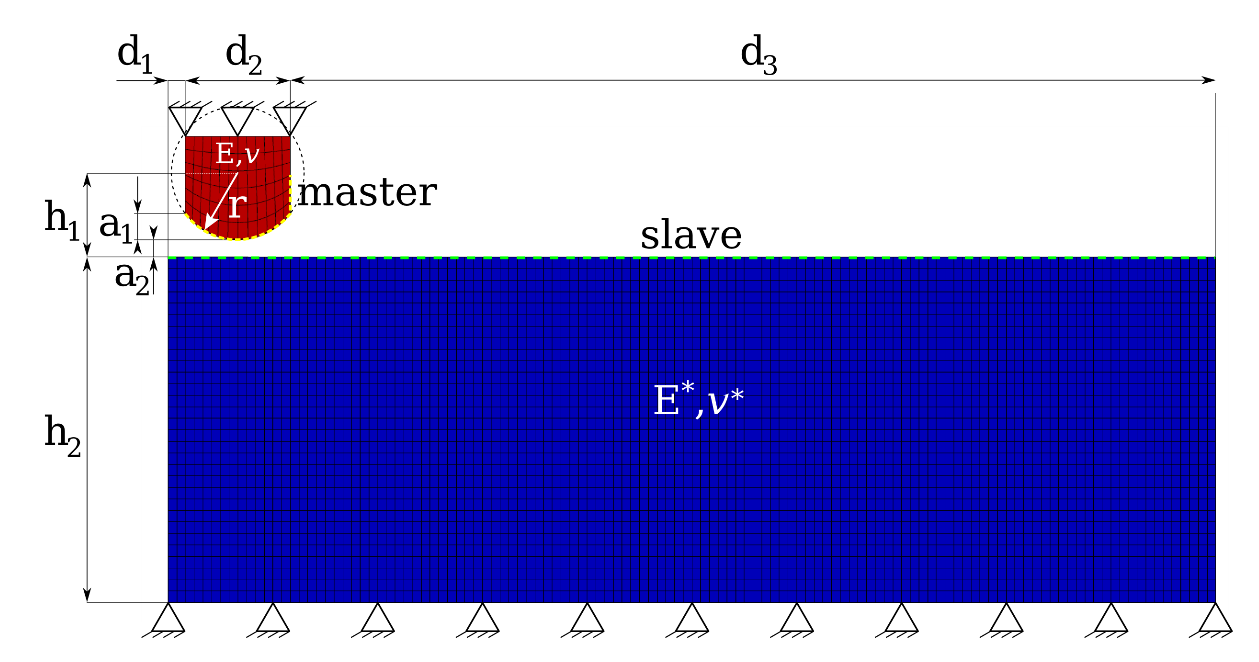1. Reference problem#
1.1. Geometry#
Consider the geometry described in the figure where the dimensions in mm are as follows:
\({d}_{1}=0.2{d}_{2}=1.2{d}_{3}=10.6r=0.75{h}_{1}=0.95{h}_{2}=4{a}_{1}=0.3{a}_{2}=0.2\)

Figure 1: Problem geometry (image from [1])
1.2. Material properties#
The 2 materials are isotropic elastic whose properties are:
\(E=68.96E8\mathrm{MPa}\) \(\nu =0.32\)
:math:`Etext{}=6.896E8mathrm{MPa}` \(\nu \text{*}=0.32\)
They are both represented in large deformations according to the model of Simo and Miehe.
1.3. Boundary conditions and loads#
The lower edge of the massif is embedded.
The upper edge of the stamp is subjected to an imposed displacement given by:
\(\begin{array}{ccc}t\in [\mathrm{0,1}]& {u}_{x}=0& {u}_{y}=t\\ t\in [\mathrm{1,2}]& {u}_{x}=10(t-1)& {u}_{y}=1\end{array}\)
For contact, the punch is master and the massive slave. We consider Coulomb friction with a coefficient \(\mu =0.3\).
1.4. Initial conditions#
Néant